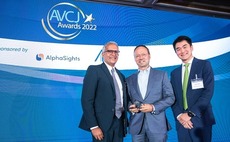
Unitas buys controlling stake in ZTE subsidiary
When ZTE decided to divest Shenzhen ZTE Netview Technology (ZNV), a subsidiary focused on power and environment monitoring and video surveillance, it wanted to act quickly. Unitas Capital was up to the task, overcoming rival bids from several financial investors and putting together a RMB1.3 billion ($208 million) deal in just one month.
"For a control transaction anywhere in the world that is fast," John Lewis, Unitas' chief investment officer, tells AVCJ. "We were well served by the fact that we were able to bring relevant knowledge of China and relevant industrial and operational expertise. We had a team of eight people who were able to move very quickly on the deal."
According to ZTE, the private equity firm has agreed to take an 81% interest in ZNV, pending regulatory approval. Of this, 65% comes from ZTE directly, at a cost of RMB1 billion, with the remainder acquired from ZTE HK, a wholly-owned subsidiary. ZTE HK will retain 9% of the business, while Shenzhen Qunxian Technology, a vehicle controlled by ZNV's management, will continue to own a 10% stake.
The company has two primary business lines: providing systems that monitor telecommunications radio base stations and internet data centers; and developing end-to-end video surveillance systems. Net profit for the nine months to September came to RMB110.6 million, compared to RMB139.7 million for 2011 as a whole.
ZNV's major customers are the Chinese state-owned telecom operators. ZTE was already supplied telecom infrastructure equipment and the operators required mechanisms to gauge the temperature, humidity and power usage of base stations. It was a logical extension of ZTE's business. The video surveillance unit had similar origins: the telecom operators wanted a systems supplier for municipal CCTV projects.
"We approached ZTE in 2010 about this business because it is a good fit for us," Lewis says. "It's an industrial business with established customer relationships in a good growth industry and with strong R&D and engineering teams and R&D depth. At the time, ZTE wasn't interested in selling but they decided quite recently that the business was non-core and undertook a sale process towards the end of 2012."
The sale is part of a wider divestment process by the technology firm. As ZTE noted in its 2011 annual report, the large-scale construction of broadband networks to serve the rapid rollout of mobile internet services is a challenge as much as an opportunity.
On a broader level, Lewis expects to see more of these deals due to a combination of macro factors and the general evolution of corporate China. "As growth in China slows and revenue and profit growth become more challenging, you will see more of these types of activities. They aren't the flavor of the month - it is something that will develop over a number of years - but they are definitely growing in number."
Latest News
Asian GPs slow implementation of ESG policies - survey
Asia-based private equity firms are assigning more dedicated resources to environment, social, and governance (ESG) programmes, but policy changes have slowed in the past 12 months, in part due to concerns raised internally and by LPs, according to a...
Singapore fintech start-up LXA gets $10m seed round
New Enterprise Associates (NEA) has led a USD 10m seed round for Singapore’s LXA, a financial technology start-up launched by a former Asia senior executive at The Blackstone Group.
India's InCred announces $60m round, claims unicorn status
Indian non-bank lender InCred Financial Services said it has received INR 5bn (USD 60m) at a valuation of at least USD 1bn from unnamed investors including “a global private equity fund.”
Insight leads $50m round for Australia's Roller
Insight Partners has led a USD 50m round for Australia’s Roller, a venue management software provider specializing in family fun parks.








